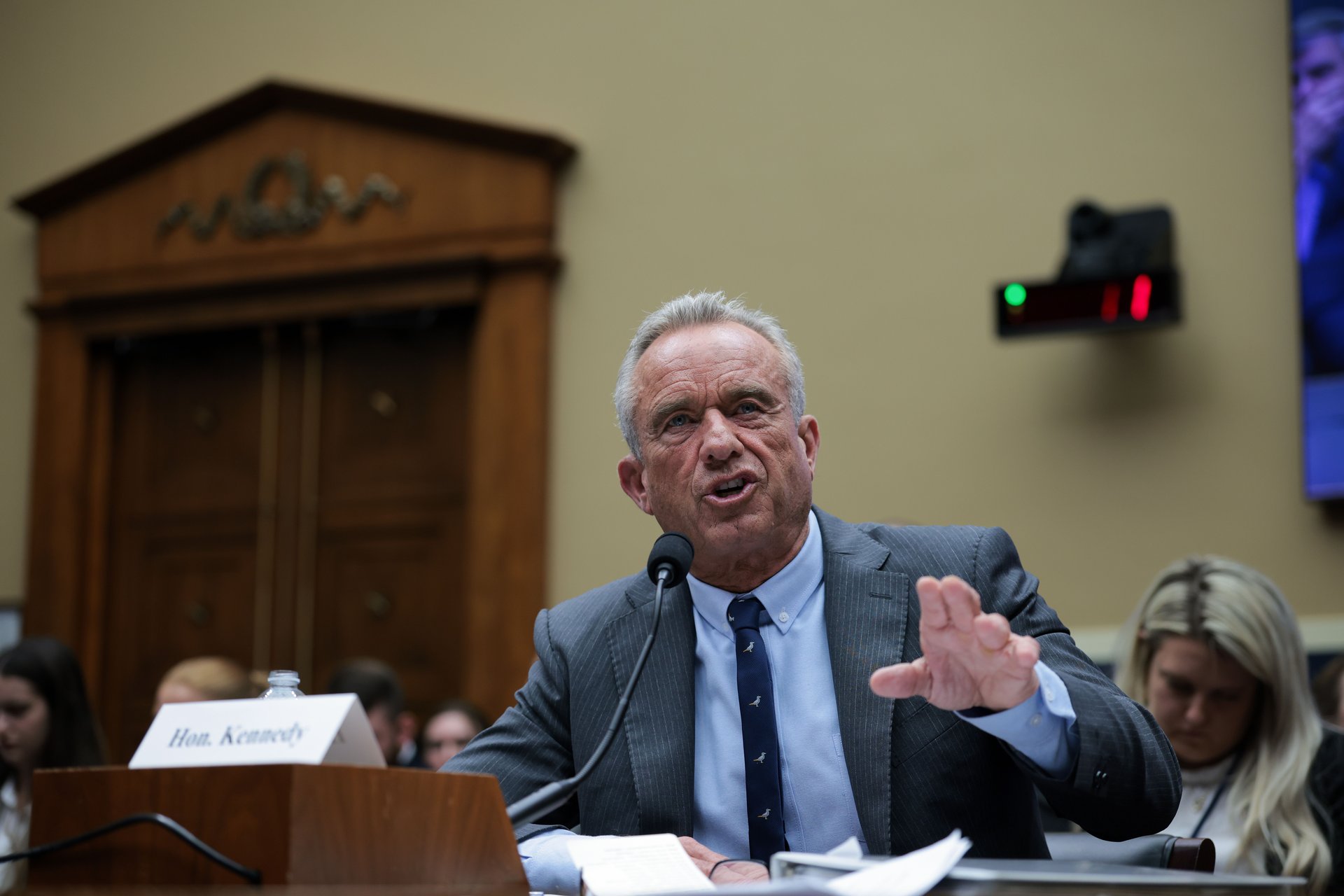Vaccine makers are facing seismic changes in U.S. policy
A federal panel filled with vaccine skeptics has bewildered public health experts and thrown vaccine makers into turmoil

Health and Human Services Secretary Robert F. Kennedy Jr
Kayla Bartkowski/Getty Images
Vaccines are one of the great public health advances of the last 100 years. The vaccines that immunize people against infectious diseases have saved more than 150 million lives worldwide and reduced infant deaths by 40% over the last 50 years, the World Health Organization estimates. And vaccine makers were among the heroes of the COVID-19 pandemic for their rapid development and deployment of effective shots.
Suggested Reading
But changes to U.S. vaccine policy under Health and Human Services Secretary Robert F. Kennedy Jr. may make it harder for both Americans and millions of people overseas to access the shots — potentially putting the $30 billion U.S. vaccine market at risk.
Related Content
The changes come at a time when vaccine manufacturers already face considerable challenges. Childhood vaccination rates have been falling in the U.S. across several disease areas, reflecting a lack of confidence in the jabs among some parents. Flu vaccination rates for the 2024-2025 season were well below those from the previous three years, even though the U.S. faced its worst flu season since 2009.
And last week, Kennedy announced that the U.S. will no longer fund the Gavi Alliance, an international nonprofit formed by the U.S. 25 years ago to vaccinate people around the world who otherwise couldn’t afford the shots. Gavi says it has helped vaccinate more than 1.1 billion children in 78 low-income countries and prevented more than 18.8 million deaths since its creation.
A major turnabout in vaccine policy in the U.S. emerged last week during a two-day meeting of the newly-reconstituted federal Advisory Committee on Immunization Practices (ACIP), which reviews the latest data on vaccines and makes recommendations to the Centers for Disease Control and Prevention (CDC). Those recommendations are almost always implemented.
Kennedy fired all 17 members of the committee, saying “a clean sweep is needed to reestablish public confidence in vaccine science,” and named eight vaccine skeptics to the panel. One of the new members, Robert Malone, proudly labels himself an “anti-vaxxer” and has promoted the widely debunked theory that COVID vaccines can cause AIDS.
The meeting, held at CDC headquarters in Atlanta, was shortened to two days from the traditional three. That was because the new members did not have time to review the material originally intended to be discussed, such as pneumonia vaccines and a shot that targets the virus that causes cervical cancer.
Instead, the committee voted to ban thimerosal, a preservative used in a small percentage of flu shots. In 2014, Kennedy wrote a book arguing that thimerosal causes autism and should be banned, although it has been proven many times over that no such link exists. H. Cody Meissner, a professor at Dartmouth's Geisel School of Medicine and the only pediatrician on the panel, said at the hearing that “ACIP makes recommendations based on scientific evidence as much as possible."
“There is no scientific evidence that thimerosal has caused a problem,” he said, adding that he found it “very hard to justify” the panel’s decision.
The panel also said it would reconsider the current childhood vaccine schedule and reevaluate hepatitis B immunizations, both of which could dramatically change long-standing recommendations FOR when and how U.S. children are immunized. That, in turn, could have major financial implications for manufacturers.
Currently, a health insurer must cover the full cost of CDC-recommended vaccines for both adults and children. Shots that don’t receive the committee’s stamp of approval could be removed from the federal Vaccines for Children program, which provides vaccines to families who can’t afford them — about half of all American children. Without widespread coverage, vaccine makers have less of a financial incentive to develop new shots, which typically have a low profit margin.
“I am deeply concerned. This is a body we trusted for 64 years that we can no longer trust,” said Richard Hughes, an attorney in the Health Care & Life Sciences practice of Epstein Becker Green. Misinformation on vaccines spread by a government body will almost certainly have an impact on the public’s confidence in the safety of vaccines, he said. “It is going to be very discouraging for the industry. They are creating a very inhospitable environment for vaccine development.”
The committee has also discouraged the medical community. After the ACIP meeting, the American Academy of Pediatrics posted a video of its president, Susan Kressly, Saying the organization will no longer take part in the proceedings because they are not “credible.” The AAP said it will continue to publish its own evidence-based recommendations and vaccine schedules.
